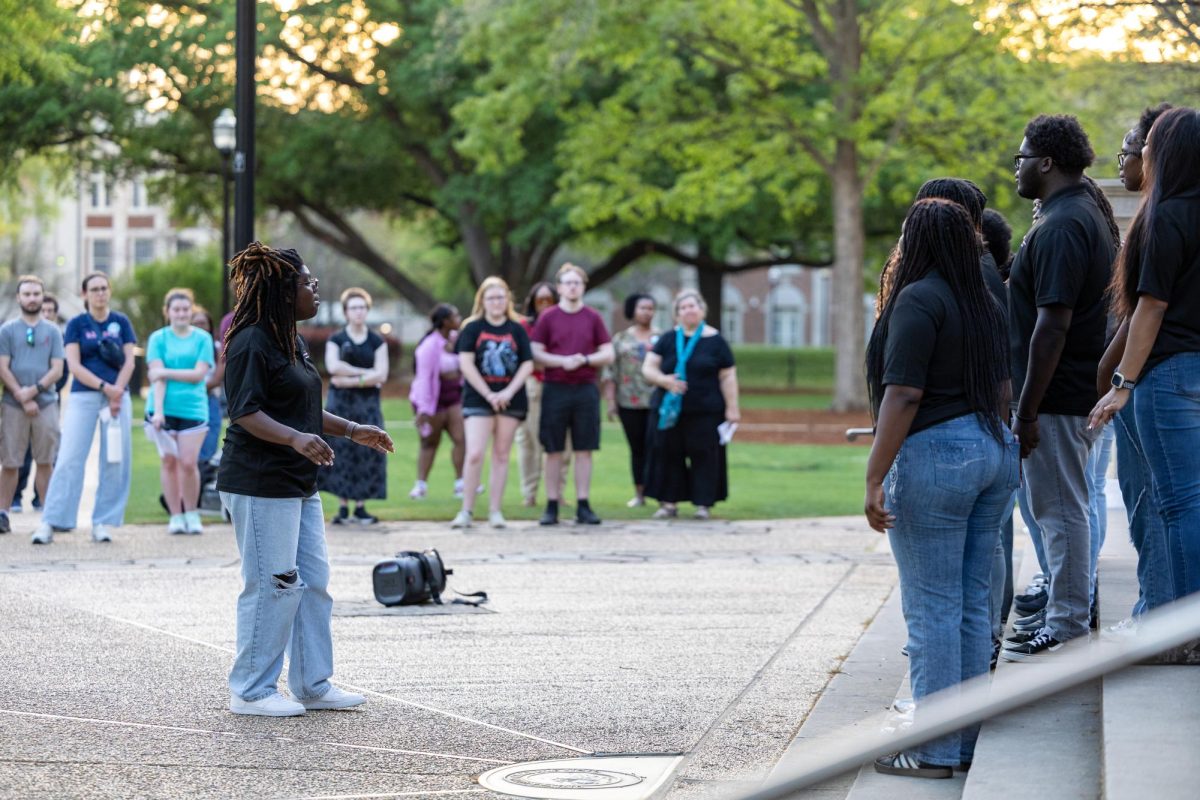When Stephen Gatti was a University of Alabama freshman in 2005, he wasn’t sure whether he would live or die.
“It was in 2005, one week into my freshman year of college,” he said. “I was actually driving back home for the weekend when it happened.”
Gatti suffered a car accident that nearly killed him and, among a large number of other injuries, broke his back. For three years, he found himself on the operating table again and again.
It took four years for Gatti to resume full time studies at The University of Alabama. Part of this time, he was uninsured. Forced off of his parents’ health insurance policy, Gatti dealt with uncertainty.
“When I was uninsured, life was complex. You have a new outlook on things,” Gatti said. “You become afraid of the smallest things out of fear of injury or illness. Every time you sneeze, you’re on pins and needles.”
Gatti said he often couldn’t afford treatments he needed.
This all changed with the implementation of the Affordable Care Act, colloquially known as Obamacare. The act allows children to remain on their parents’ health insurance policies until they turn 26. With the Affordable Care Act, Gatti was insured again under his parents’ policy. The result is relief for him and his family.
“When I was off of their healthcare plan, I was forced to lean on them for support when I had a need to see a doctor or was in need of a medication, and this caused them additional financial burdens that they were not necessarily prepared to incur,” Gatti said. “So, when ACA allowed me to return to their healthcare plan, that fear of illness and potential burden was lifted [from] not only my shoulders, but theirs as well.”
According to a Centers for Disease Control and Prevention study, Gatti is part of a national trend.
The New York Times reports that the Sept. 12 study shows the number of young adults without health insurance fell by one-sixth in 2011. This decline is the largest annual drop for any age group since 1997.
Though it’s too early to see any significant impact, effects of the Affordable Care Act are already being seen in the Druid City Hospital System. Since the federal health reforms went into effect in 2009, DCH has seen a decrease in uninsured 22-26 year olds from 20.77 to 15.32 percent.
As a community-owned, nonprofit organization, it is DCH’s policy to provide care to all patients, including the uninsured. To cover the cost of uninsured patients, DCH receives 10 percent of the money raised by the two cent Tuscaloosa County sales tax. According Bradley Fisher, communication director at DCH, this tax does not cover the entire cost of caring for the uninsured, and the rest of the cost is absorbed by the hospital.
“The true impact of ACA won’t be known until the regulations are written, so it’s too early to state an opinion. We can say that hospitals must have adequate margins to stay open,” Fisher said. “If healthcare coverage isn’t expanded, hospitals and providers must be compensated somehow for caring for the uninsured.”
Joseph L Smith, an associate professor of political science, said hospitals will see a decline in the cost of caring for the uninsured because the Affordable Care Act requires most Americans to have health insurance or otherwise pay a financial penalty.
“The ‘individual mandate’ is controversial because it is unusual for the national government to require consumers to purchase something from the market, but is necessary in order to maintain the economic viability of the [healthcare] system,” Smith said.
Smith said the Affordable Care Act is a reform of the health insurance industry, not healthcare itself. The individual mandate is a part of the reform and does not create a new health insurance plan itself.
Dana Patton, an assistant professor of political science, said the United States is the only industrialized democracy that does not provide health insurance for all people.
“In most other industrialized democracies, the right to quality healthcare at free or low cost is considered a human rights issue,” Patton said. “The point of this is that no one goes bankrupt because of a hospital or doctor bill. No one puts off going to the doctor because they don’t have financial means to pay or health insurance.”
Gatti said his experience without health insurance was complex.
“I restricted myself from living a carefree life because I didn’t want to be in a position where I had to decide between food and gas or doctor and medicine,” Gatti said. “The only thing worse than being sick is being broke and sick.”
Today’s story is the first part of a continuing series on the Affordable Care Act and its effect on college students.








